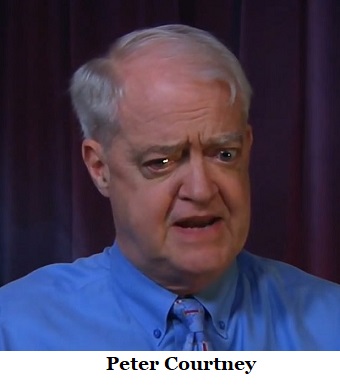Go ask your dad
Last week was one of the final deadlines as the 2021 Legislative session winds down. Bills must have been moved out of the committee in the second chamber to remain alive, with a few exceptions.
Bills that had been sent from the House to the Senate needed to be moved out of committee either to the floor or to a revenue, rules or ways and means committee. The same process applies for bills sent from the Senate to the House.
While there have been plenty of bills that have moved beyond this deadline, it is always interesting to see what the second chamber decided to kill. Here are a few of the highlights.
Senate bills killed by House committees
- SB 605 Killed in the Ag and Natural Resources committee. This bill proposed an expansion process for rural fire protection districts. The issue was brought forward by Sen. Frederick (D - Portland) on behalf of one county who is not connected to his district.
- SB 594 Another Sen. Frederick (D – Portland) bill that stated out as prohibiting school districts from using monitoring software on students’ computers. It was amended by the Senate Education Committee into a study of software that could be used. The House Education Committee chose not to even hear the bill.
- SB 314 Would allow electric companies to recover the costs from rate payers for installing additional Electric Vehicle charging infrastructure. Environmental groups opposed the bill because it also contained provisions for expansion and improvements to CNG (compressed natural gas). The House Environment & Energy Committee chose to allow it to die knowing that the cost recovery for the electric companies only portion was contained in HB 2165 which had already moved through both chambers on a party line vote.
- SB 299 Would have allowed for the creation of children’s service tax districts with the implementation of a permanent special tax district if approved by the voters. The tax service district would be based on property value and would be in addition to the current property taxes that fund K-12 education. Introduced by Sen. Rile (D - Hillsboro), Sen. Wagner (D – Lake Oswego), and Rep. Schouten (D - Beaverton), the bill passed out of the senate with bi-partisan support. However, Counties, Cities and others could not get behind a new tax that would undermine programs for children outside of the K-12 system.
- SB 441 This is another example of a bill that died because an almost identical House bill had already run been successful. The bills modified the criteria for erecting roadside memorials for deceased veterans. SB 441 and HB 2700 were almost identical but HB 2007 allowed for individuals also identified by the Defense POW/MIA Accounting Agency. Both measures had bipartisan support.
House bills killed by Senate committees
- HB 2495 It did not receive overwhelming support in the House due to the perception that it was jumping the gun on the Toxic Free Kids Act (TFKA) which has not yet had time to be fully implemented. The bill brought forth by Rep. Neron (D- Wilsonville) and Sen. Dembrow (D - Portland) sought to strengthen the limitations in chemicals that could be detected in children’s products as well as expand on the reporting requirement.
- HB 2958 After leaving the house with forty-seven supporting votes, it was surprising to see the Senate kill this bill. Brought forward by Rep. Nosse (D - Portland) Rep. Grayber (D -Tigard) and Sen. Lieber (D - Beaverton) it sought to allow pharmacists to prescribe, dispense and administer HIV prevention (not treatment) medications. However, the issue that could have been the demise of the bill, was the amendment that was adopted requiring insurance agencies to pay for the prescriptions.
- HB 2758 The bill moved out of the house by the will of the majority party and would have required the Oregon Liquor Control Commission to have two commissioners with public health backgrounds. To gain Republican support, the House committee adopted an amendment that said it would only affect commissioners appointed after the change. However, there was also a push to add a commissioner that was a representative of the cannabis industry.
- HB 2616 Sometimes bills are introduced to solve one landowner’s issue but fall victim to partisan politics. HB 2616 looked to fix a problem for a single pond owner in Southern Oregon. He had purchased a piece of property only to discover that the pond on it was constructed by the previous owner without a permit. In 2020, a bill was also introduced to try and help solve the pond problem. It passed the House and Senate committees and the House floor by unanimous vote but died due to the session walk out. Now it appears to have died because of partisan politics. Three House Democrats who supported the bill in 2020 voted no this time in committee and then convinced 16 more Democrats to join them in voting no on the floor of the House. However, it still managed to move to the Senate. During the 2020 Session, the bill received unanimous support in the Senate Environment and Natural Resource Committee, but this time, with a new committee Chair, it only received a courtesy hearing and then died for lack of action. Unanimous support one session and partisan politics the next.
As the days for the 2021 session draw to a close, one thing is sure, the two Chambers of the Legislature maintain a historic difference of opinion on many matters, and politics still plays a part in what makes it into law.
--Terese Humboldt| Post Date: 2021-06-02 10:32:58 | Last Update: 2021-06-02 11:13:13 |






